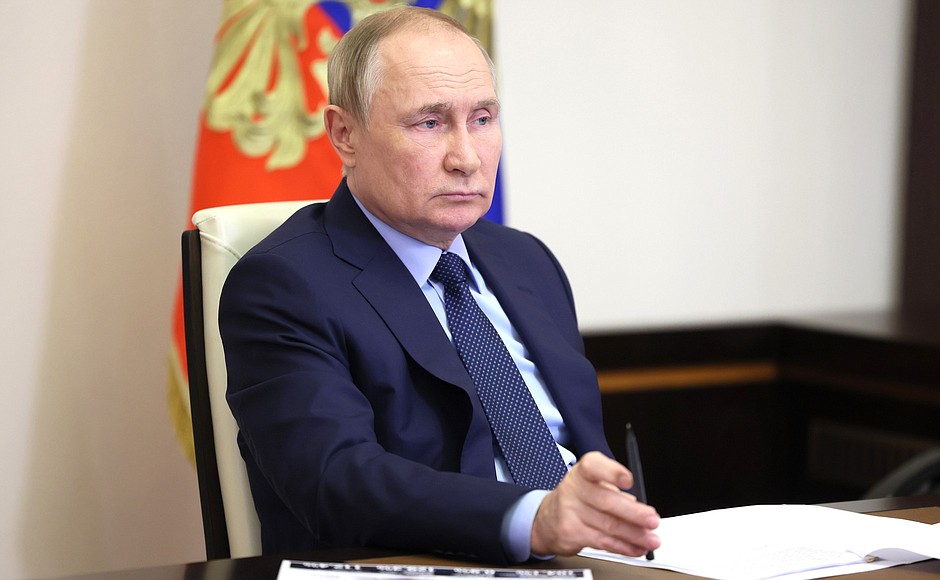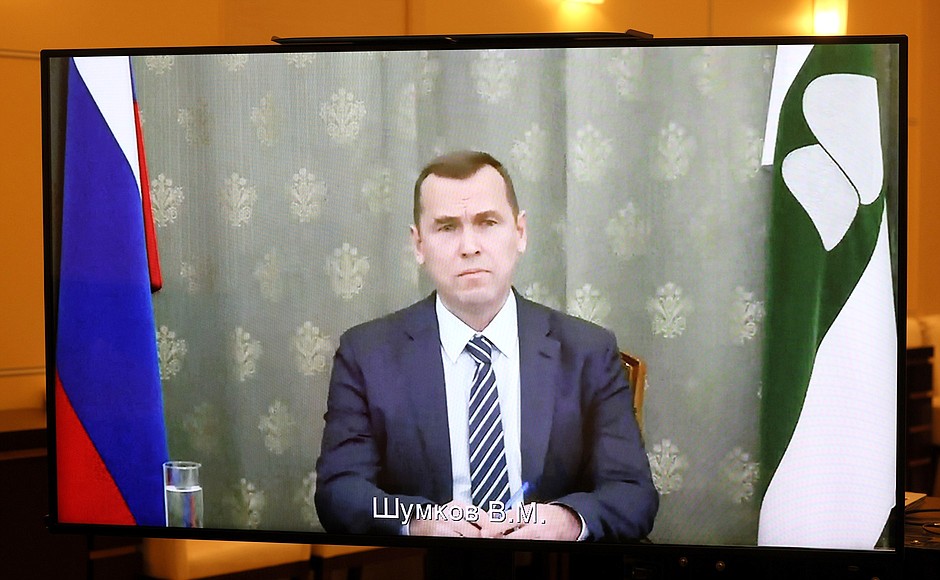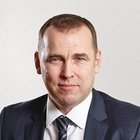The President suggested beginning the meeting by assessing the performance of the priority development areas, which were created to improve conditions in single-industry towns.
Vadim Shumkov said that this format has proven effective but with the use of other comprehensive measures. As part of a separate programme, industrial parks were also considered priority development areas. The region currently has five industrial parks with over 1,000 new jobs. By 2025, there will be nine such parks. A new format for support has been developed as well: subsidies to compensate the first installment on equipment lease agreements. Due to the programme, the industrial production index grew by 104 percent, and investment in fixed assets by almost 130 percent. Unemployment decreased almost twofold: from 1.8 percent to 0.9 percent.
Vladimir Putin noted that the governor’s comments on what is necessary to improve the efficiency of priority development areas are important for the Government’s analysis. At the President’s request, Vadim Shumkov elaborated on this issue. He also asked the President to support the region’s proposals to extend the term of concessions for resident companies in priority development areas, and to remove the quota for the number of industrial parks per region, as stipulated in the national project, Small and Medium-Sized Business and Support for Individual Entrepreneurship Initiative.
The discussion also covered the performance of the agro-industrial sector, and the region’s budget and investment. The region is currently developing 1,313 investment projects that will create 13,000 new jobs; 7,500 of them have already been created.
The governor told the President about the administrative municipal reform, which, in particular, allowed for saving 1.5 billion rubles in the budget. He also mentioned measures related to streamlining utility expenses, the successful connection of the region’s households to the gas system, repairing and constructing roads and bridges, dealing with issues of water distribution and sewage, relocating people from dilapidated housing, and working on the Comfortable Urban Environment programme.
As for healthcare, according to the governor, 239 healthcare facilities of all levels have been improved since 2019. Fifty-nine new module rural health stations and outpatient clinics were built, 264 units of heavy equipment purchased, and the ambulance fleet completely renewed. In Kurgan alone, three new large medical facilities are being built.
As part of the Education federal programme, 58 schools are receiving a major overhaul. Over the past three years, 19 new kindergartens and four large schools have been built in the region. The governor also asked the President to consider the possibility of increasing funding for an oncological medical centre and for two schools due to the growing inflation rate.
Vadim Shumkov also mentioned some long-standing problems in the region, in particular, a certain level of alcohol and drug addiction. The rate of chronic alcoholism fell by 3 percent, and drug addiction by 9 percent. The tuberculosis rate in the region was difficult, but over five years it has decreased by 32 percent.
Summing up, Mr Shumkov noted that the poverty rate in the region decreased by 1.1 percent from 2018 to 2021. In 2018, it was almost 20 percent.
The governor also briefly reported on activities related to the special military operation. The 232nd Rocket Artillery Brigade, which received the honorary Guards title by Presidential Executive Order, is garrisoned in the region. More than 12 million rubles have been allocated from the region’s budget to resolve a number of issues necessary for military personnel including backup support, additional accoutrement, and equipment.
A residential town where the families of servicemen live has also been taken under guardianship. Mr Shumkov personally met with the families. They have received one-time payments, and a children’s play area was installed in the town.
About 250 tonnes of humanitarian aid were collected for Donbass. More than 140 children from the Lugansk People’s Republic came to the region for their holidays this summer.
As part of the partial mobilisation, everyone was provided with full assistance and was outfitted; the equipment was purchased completely at the region’s expense. The local authorities took care of the families of those mobilised on a wide range of issues, including gas connections, roof repair, flat renovation, medical issues, one-time financial payments – everything is resolved in a timely manner. For these purposes, a social portrait of each family was made showing the issues that needed to be addressed.
Mr Putin thanked the governor for the initiatives to support the special military operation and, above all, the families of the military personnel, praised the idea of a passport for each family of the mobilised and said the idea should be replicated throughout the country.
The President also commented on other issues raised during the meeting, in particular, he asked the governor to pay special attention to the difficult situation with socially significant diseases, as well as the fight against drug addiction. There are both medical and law enforcement aspects, the President noted, but the problem cannot be mitigated through law enforcement alone, it requires joint work and an active position in this area.
The President considered the proposals to extend the deadlines for PDAs, to make this system more efficient, timely and to create demand. The Economic Development Ministry, together with the region, is to work on this.
Vladimir Putin also drew attention to the labour market and the unemployment rate and expressed hope that the investment projects that Mr Shumkov spoke about would help resolve these problems more efficiently.


